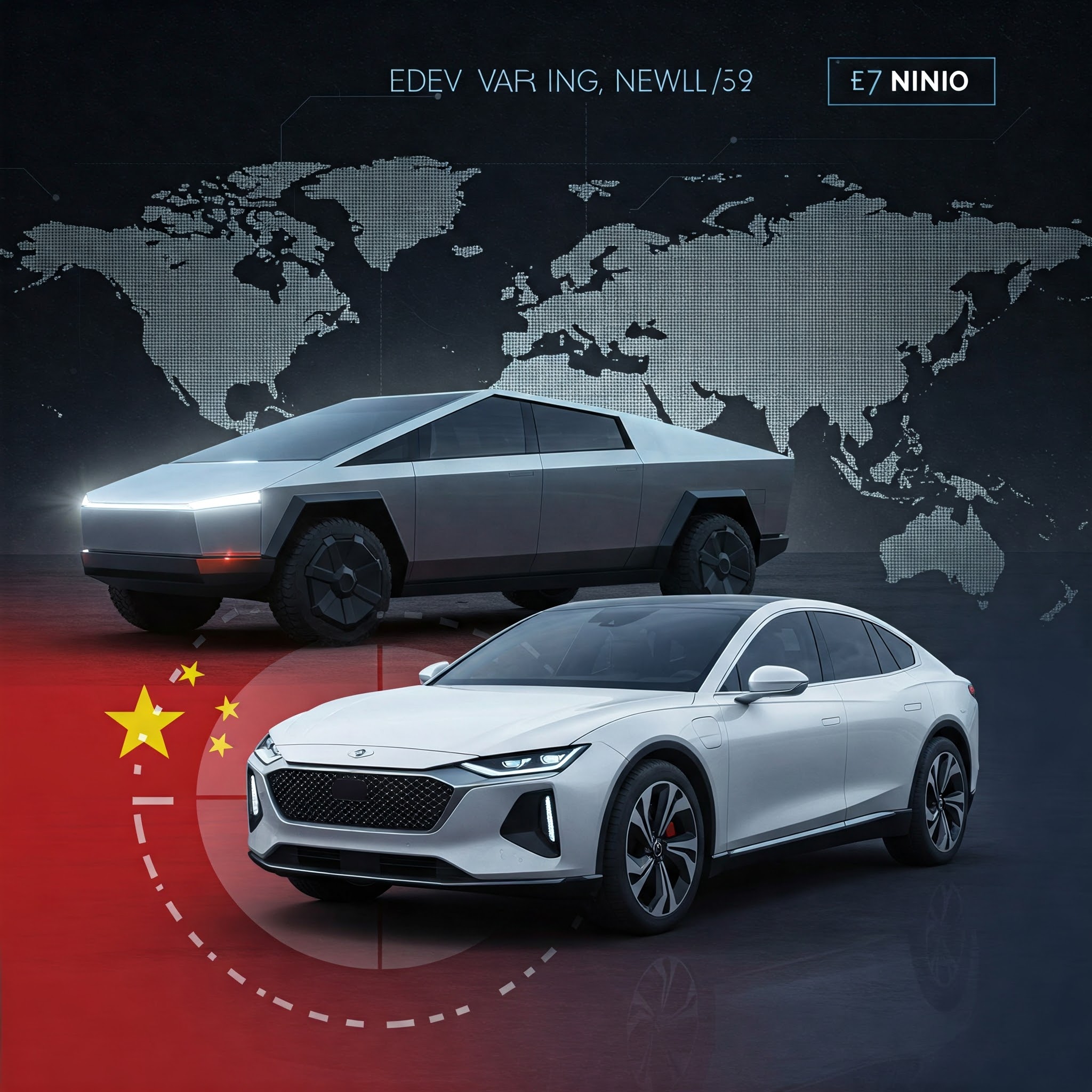By Mofeoluwa Awe
The electric vehicle (EV) landscape is undergoing a significant transformation, with Chinese manufacturers rapidly gaining ground and posing a direct challenge to Tesla’s established dominance. While Tesla has long been synonymous with cutting-edge EV technology and a premium brand image, the emergence of competitive Chinese EVs is reshaping the market dynamics.
Several Chinese EV brands are making notable strides, offering vehicles with advanced technology, competitive pricing, and increasingly sophisticated designs. Companies such as BYD (Build Your Dreams), Nio, and Xpeng are expanding their global footprint, presenting consumers with compelling alternatives to Tesla’s offsprings. BYD, in particular, has seen substantial growth, becoming a major player in the global EV market. According to data from the China Passenger Car Association (CPCA), in 2024, BYD held a 34.1% share of the Chinese NEV (New Energy Vehicle) market, significantly outpacing Tesla’s 6.0% share within that same market.
Analysts at BloombergNEF report that Chinese EV manufacturers are leveraging their strong domestic market and government support to achieve economics of scale and accelerate technological advancements. This has allowed them to offer vehicles with comparable, and in some cases, superior features at more competitive price points.
“The Chinese EV market is incredibly dynamic,” states an automotive industry analyst from Carscoops, “Chinese brands now command a staggering 76% share of the global EV and plug-in-hybrid (PHEV) market, thanks to aggressive expansions into new territories.”
This surge in Chinese EV competition with a growing concern among some Tesla owners regarding the brand’s public perception. Reports and social media discussions indicate that some Tesla owners are opting to replace their vehicle logos with those of other car brands, potentially to avoid unwanted attention or negative interactions. This trend, while not widespread, highlights the impact that brand perception can have on consumer behaviour.
The rising competition from Chinese EV’s could be a contributing factor to this phenomenon. As Chinese manufacturers gain market share and offer increasingly attractive alternatives, some Tesla owners may feel less inclined to prominently display the Tesla logo, particularly in regions where Chinese EV’s are gaining popularity.
The technological advancements of Chinese EV’s are also noteworthy. Companies like Nio and Xpeng are integrating advanced features such as autonomous driving capabilities and sophisticated infotainment systems, directly competing with Tesla’s offerings. In terms of battery technology, companies like CATL, a Chinese company, are a world leader in battery production, and are supplying many car manufacturers, including many Chinese EV companies.
The geopolitical implications of this shift in the EV market are also significant. As Chinese EV manufactures expand their global reach, they are challenging the traditional dominance of Western automakers. This has the potential to reshape the global automotive industry and influence international trade dynamics. The growing market share of Chinese EV companies is changing the landscape of the automotive industry.
The increasing competition from Chinese EV manufacturers presents both challenges and opportunities for Tesla. While Tesla remains a leading innovator in the EV space, it must adapt to the evolving market dynamics and address the growing competition from Chinese manufacturers. The future of the global EV market will likely be shaped by the ongoing competition between these industry players.
Sources
https://cnevpost.com/2025/01/10/automakers-share-china-nev-market-2024/
https://www.carscoops.com/2025/02/chinese-automakers-already-dominate-the-global-ev-market/





Comment
No comments found.